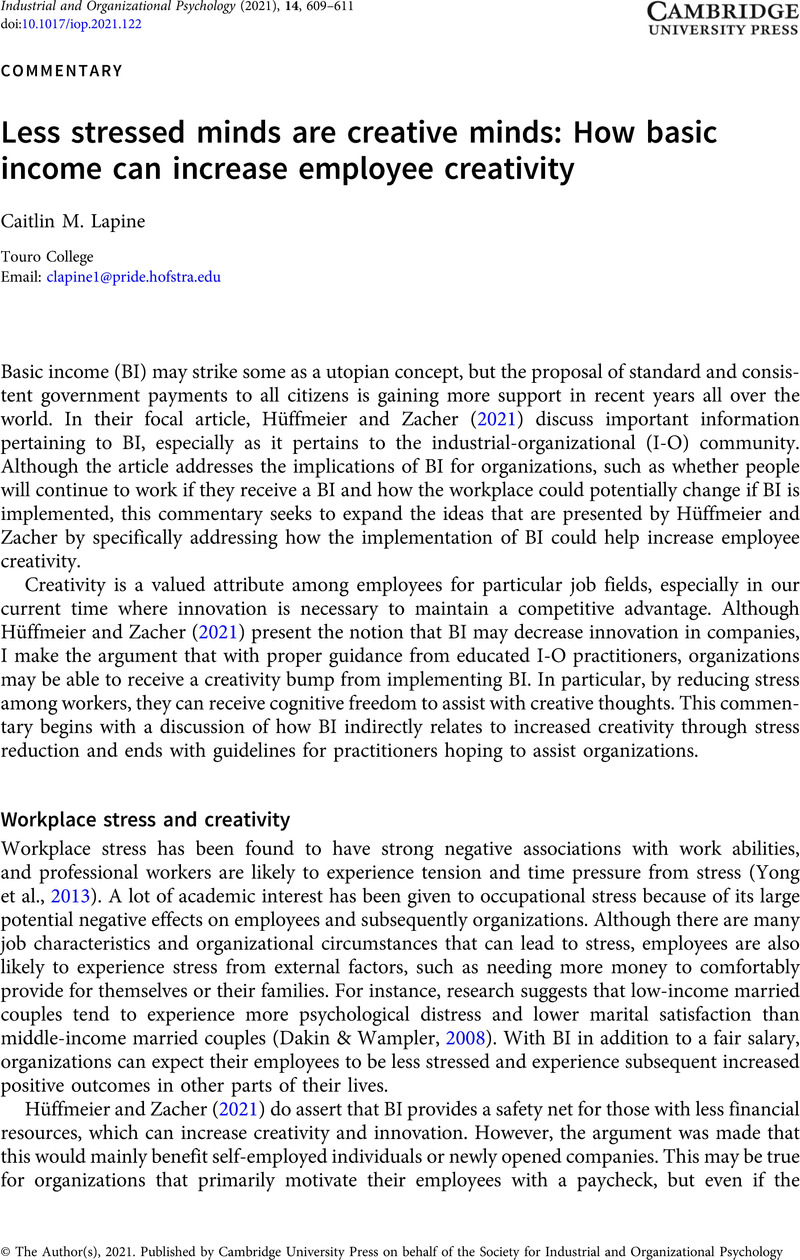No CrossRef data available.
Article contents
Less stressed minds are creative minds: How basic income can increase employee creativity
Published online by Cambridge University Press: 14 December 2021
Abstract
An abstract is not available for this content so a preview has been provided. Please use the Get access link above for information on how to access this content.

- Type
- Commentaries
- Information
- Copyright
- © The Author(s), 2021. Published by Cambridge University Press on behalf of the Society for Industrial and Organizational Psychology
References
Byron, K., Khazanchi, S., & Nazarian, D. (2010). The relationship between stressors and creativity: Ameta-analysis examining competing theoretical models. Journal of Applied Psychology, 95(1), 201–212.CrossRefGoogle Scholar
Dakin, J., & Wampler, R. (2008). Money doesn’t buy happiness, but it helps: Marital satisfaction, psychological distress, and demographic differences between low- and middle-income clinic couples. American Journal of Family Therapy, 36(4), 300–311.CrossRefGoogle Scholar
Hüffmeier, J., & Zacher, H. (2021). The basic income: Initiating the needed discussion in industrial, work, and organizational psychology, Industrial and Organizational Psychology: Perspectives on Science and Practice, 14(4), 531–562.Google Scholar
Mannix, E., & Neale, M. A. (2005). What differences make a difference? The promise and reality of diverse teams in organizations. Psychological Science in the Public Interest, 6(2), 31–55.CrossRefGoogle ScholarPubMed
Milne, P. (2007). Motivation, incentives and organisational culture. Journal of Knowledge Management, 11(6), 28–38.CrossRefGoogle Scholar
Yong, M., Nasterlack, M., Pluto, R. P., Lang, S., & Oberlinner, C. (2013). Occupational stress perception and its potential impact on work ability. Work: Journal of Prevention, Assessment & Rehabilitation, 46(3), 347–354.CrossRefGoogle ScholarPubMed




